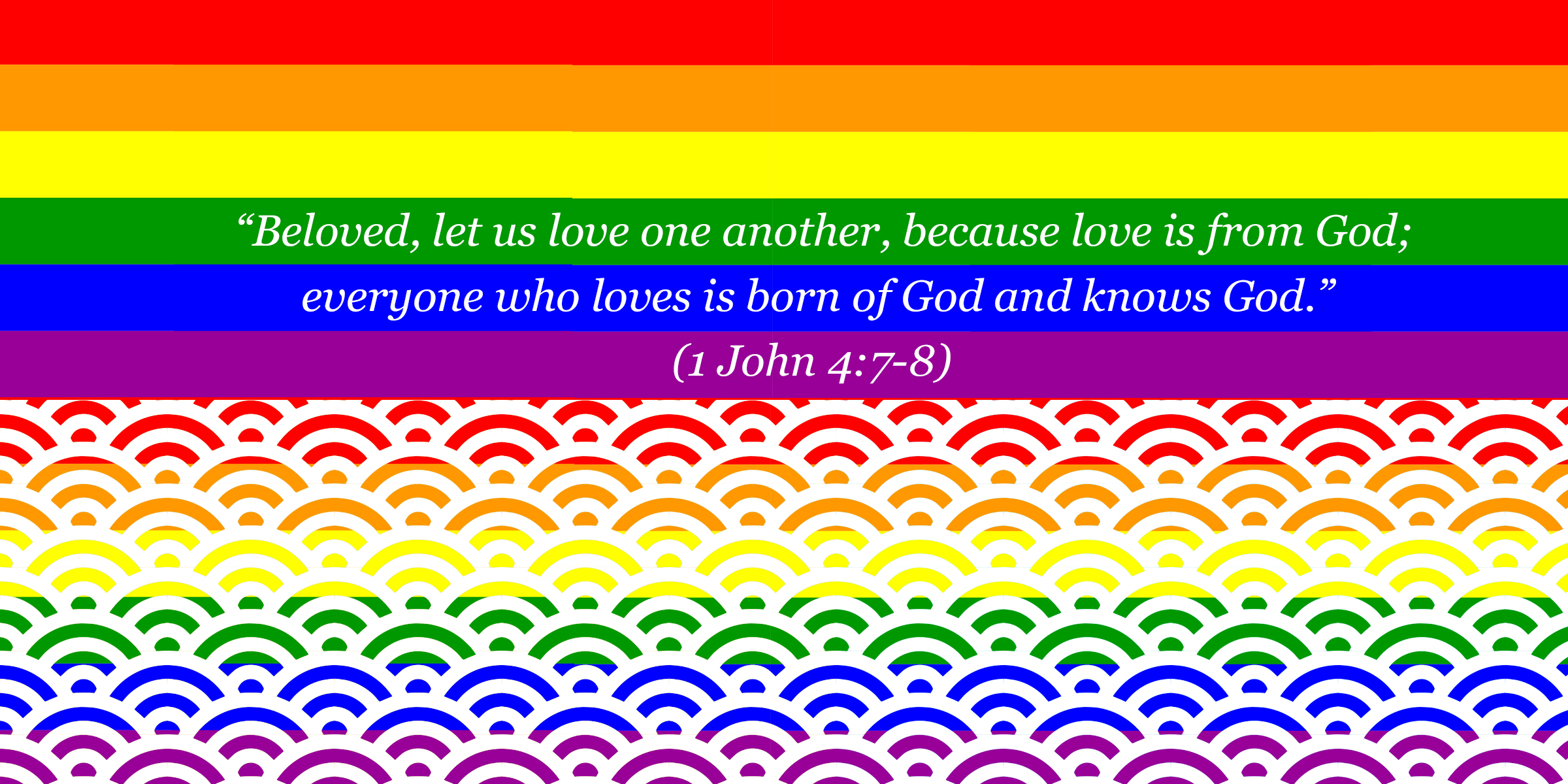Apr 19, 2020: Faith is Blind
1 Peter 1:3-9, John 20:19-22, 26-29
There’s a show on Netflix that if you haven’t seen I highly recommend. It’s called Love Is Blind. We’ve heard the expression before, but the premise is like something perfectly curated for this season of our lives. Perfect strangers are brought together to meet their future spouses, but the catch is that they can’t see each other face to face. They connect virtually, with a wall standing between them, and after only a few days, several couples profess their love and become engaged to be married.
I imagine our lives of faith are a little bit like this.
“Although you have not seen Jesus, you love him; and even though you do not see him now, you believe in him and rejoice with an indescribable and glorious joy, for you are receiving the outcome of your faith, the salvation of your souls.”
Faith can be difficult to describe. To those who share our faith, it can be an incredible comfort to express what we are feeling. I treasure my conversations with trusted friends whom I can talk to about God and pray with. But talking about faith doesn’t always come easily. In fact, faith itself doesn’t always come easily.
It is true that faith is a gift, but it is a gift that doesn’t appear to be spread evenly. Many Christians have lamented this over the years, whether in their own struggle of faith or in praying for loved ones. It seems that faith is blind, being doled out to people regardless of our worthiness.
The letter to the Hebrews describes faith this way: “Now faith is the assurance of things hoped for, the conviction of things unseen”. Words like “assurance” and “conviction” can feel daunting. Do I really have enough faith? How do I know I have faith? Pretty soon faith becomes a burden rather than the joy described in 1 Peter.
We live in the era of information. Not only are there statistics on just about anything you can imagine, but you can find it with the touch of a button (or a touch screen phone). We are programmed to find evidence, and stumped when we don’t find it. The response of some Christians to this era of information is to insist on the evidence for our faith, whether through relics or the literal interpretation of scripture. But this kind of faith can be fragile, and often leaves spiritual wounds.
Perhaps you have heard it said that “Doubt is not the opposite of faith; certainty is.” Certainty can smother true faith.
I have spent years of my life praying for certainty. God seems intent on giving me faith instead. So I have compassion for Thomas when he asks to see the risen Jesus, to have physical proof. After all, Jesus had appeared to his other disciples. John’s gospel doesn’t tell us why Thomas was absent at this first reunion. Certainly there isn’t anything unique about Thomas to suggest that he was more inclined to doubt than the rest of the disciples.
What made him unique was his chance absence. Thomas doesn’t lack in faith or understanding through any fault of his own. Only days earlier, he had convinced the other disciples to go with Jesus to Jerusalem despite the risk of death, a risk they would have faced, too.
But for Thomas, the resurrection broke the limits of his faith. It was too good to be true. Of course, the other disciples also doubted. They had heard the news of Jesus’ resurrection from the women and wanted to see for themselves. Thomas was not any different. So doubt is not a failure of Jesus’s followers but a natural human experience. It stems from our deep desire to know God, and what is that other than faith!
In our lives of faith, we all encounter seasons of doubt. Sister Marlene Miller, of the Order of St. Benedict, writes, “God is with us no matter where you are on the continuum of faith. If at the moment you don’t believe, that’s okay. But by tending your faith, you will have a strength available in times of crisis.”
Friends, in times of crisis, some may feel our faith is being tested, while others may feel faith revived. Remember the disciples had experienced trauma. They had seen their leader killed. They hid behind closed doors from the looming threat of violence. Their conversations at this time were not remembered or recorded for later generations. But even the locked doors did not keep Jesus out. Neither will the closed doors of our homes, churches, and businesses.
And Jesus has said “Blessed are those who have not seen and yet have come to believe.” We are so blessed to know God, Creator, Christ, and Holy Spirit. To know the glory of our resurrected Lord. With the faith, great or small, which we can muster today, let us join with Thomas in saying, “My Lord, and my God!”
If you are struggling with faith or feeling as though God is far away, it is alright to doubt. But I encourage you to wrestle with your doubt. Talk about it with God. Try journaling or spending time in silence. Turn to scripture. Listen to music or walk alone in nature. God is yearning to be with us, and we are yearning to be with God, too.
And praise be to God, we worship a God who finds us in our locked rooms and offers Himself to us, wounds and all, accepting us as we are, wounds and all.
So let this be our prayer: “Lord, I believe, help my unbelief.” Amen.





Pingback: Apr 24, 2020: Still Doubting – Parkview Presbyterian Church